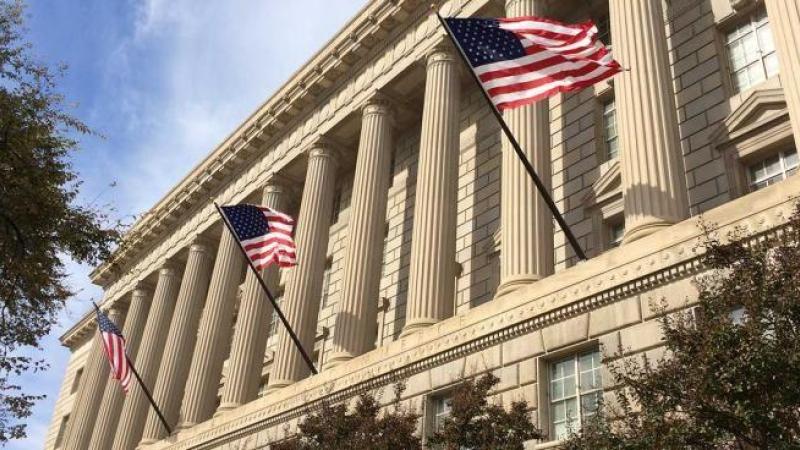Congress considers changes to banking rules that have long challenged marijuana industry
Legalization has facilitated the establishment of dispensaries and, consequently, the demand for digital payment services during retail transactions.
The seemingly boundless business and investment opportunities as a result of the legalization of recreational marijuana across the country since 2012 has been held in check by the financial sector's concerns about the complexity of banking laws and its apprehension to participate. But federal legislation if passed and signed into law could soon present new and wider opportunities.
Nearly half of U.S. states now allow the recreational use of marijuana, with Ohio residents earlier this month voting on a ballot initiative to become the most recent state. And, 38 have approved it for at least medicinal purposes, according to the American Non-smokers' Rights Foundation.
Estimates show global 2023 revenues for the industry of $48 billion to $53 billion. Of that, $33-34 billion is projected to come from U.S. retail sales, according to MJBizDaily. The same group estimates the projected additional U.S. economic impact for 2023 at more than $100 billion.
Legalization has facilitated the establishment of dispensaries and, consequently, the demand for digital payment services during retail transactions. Complicating the matter, however, are financial industry fears about facilitating transactions that are technically illegal and contributing to a demand for legislation to assuage their concerns.
Marijuana is illegal at the federal level
Marijuana is a Schedule 1 controlled substance under the federal Controlled Substances Act. Despite state laws permitting marijuana use, the U.S. Food and Drug Administration has not approved marijuana for any medical use.
"Although some states within the United States have allowed the use of marijuana for medicinal purpose, it is the U.S. Food and Drug Administration that has the federal authority to approve drugs for medicinal use in the U.S." a fact sheet from the Drug Enforcement Agency (DEA) reads.
"To date, the FDA has not approved a marketing application for any marijuana product for any clinical indication. Consistent therewith, the FDA and DEA have concluded that marijuana has no federally approved medical use for treatment in the U.S. and thus it remains as a Schedule I controlled substance under federal law."
In cities across the country, police departments have simply said enforcing laws against use and the possession of small amounts of marijuana will not be a high priority.
Banks are hesitant to work with marijuana businesses
The complicated legal situation has led to some financial institutions distancing themselves from the industry. Mastercard in July of this year instructed banks and payment processors not to permit marijuana-related transactions using its debit cards, Bloomberg reported at the time.
"As we were made aware of this matter, we quickly investigated it. In accordance with our policies, we instructed the financial institutions that offer payment services to cannabis merchants and connect them to Mastercard to terminate the activity," a spokesperson for the company said.
One of the key workarounds to which the industry resorted, cashless ATMs, has already attracted considerable scrutiny and restriction. The use of cashless ATMs effectively makes a charge resemble an ATM withdrawal rather than a typical retail transaction.
Visa, in late 2021, warned banks against cashless ATMs, announcing they violated company policy, according to Forbes. By December of last year, numerous processors, such as Columbus Data Services, had moved to block their use, Bloomberg noted.
Legislation to protect banks is in the works
Legislation to address the complications of legalized marijuana at the state level has been a years-long effort.
Late September, however, saw a possible breakthrough, with the Secure And Fair Enforcement Regulation (SAFER) Banking Act clearing the Senate Banking, Housing, & Urban Affairs Committee, paving the way for an eventual floor vote on the bill.
The bill would prevent federal regulators from barring banks from doing business with state-sanctioned marijuana businesses while further protecting financial institutions from federal retaliation for doing so. The legislation would not legalize marijuana at the federal level, however, and merely ensure that banks would be able to work with state-recognized marijuana business should they wish without fear of federal reprisal.
The committee vote marked a significant milestone for the upper chamber on the issue, being the first time that the Senate addressed marijuana banking legislation, according to Forbes. A prior version of the legislation have passed the House of Representatives multiple times since 2019, though it failed to clear the Senate.
Ben Whedon is an editor and reporter for Just the News. Follow him on X, formerly Twitter.















